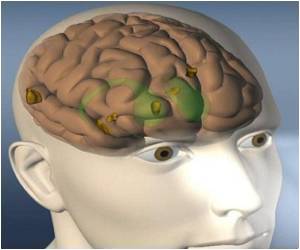A modified measles virus has shown potential for treating childhood brain tumour known as medulloblastoma in a new study.

These tumours are located in the cerebellum, the area of the brain that controls balance and other complex motor functions. Refinements in treatment have increased the 5-year survival to close to 70 percent, but treatment still involves invasive surgery, radiation therapy and chemotherapy.
"There is still an urgent need to investigate alternative therapeutic approaches that are more effective and have less toxic side effects," said study lead author Corey Raffel, chief of Neurosurgery at Nationwide Children's Hospital and a faculty member of The Ohio State University College of Medicine.
Vaccine strains of measles virus have been used to kill tumour cells in a number of tumour types including one type of adult brain tumour. One vaccine strain of measles, the Edmonston strain, targets the cell surface receptor CD46 to gain entry into susceptible cells.
"This preference most likely explains the efficacy of Edmonston strains in killing tumour cells, given the high level of expression of CD46 in multiple tumour types. It is also the reason we chose to explore a modified Edmonston's strain of measles virus for use in medulloblastoma," said Dr. Raffel.
The team's laboratory studies revealed that established medulloblastoma cell lines express the measles receptor, CD46 and that medulloblastoma specimens removed from patients have a high level of CD46 expression.
Advertisement
Having demonstrated receptor expression, the team treated the medulloblastoma cell lines with the modified measles virus. Within 72 hours, all cell lines exhibited significant tumour cell death.
Advertisement
By the end of the study period, pathological review of the animals confirmed that two of the animals were free of tumour and the third had a very small amount of residual tumour. In eight of the eleven mice the primary tumour was eradicated.
"Our study demonstrates that a modified measles virus has therapeutic potential in the treatment of intracerebral medulloblastoma. These results provide initial data to be pursued with additional studies toward the goal of using the virus in a clinical trial for the treatment of medulloblastoma. Measles virus therapy could be applied to the tumour bed following surgical resection to target microscopic residual disease. This approach could potentially alleviate the need for radiation and chemotherapy," said Dr. Raffel.
The new study appears in Neuro-Oncology.
Source-ANI
RAS















